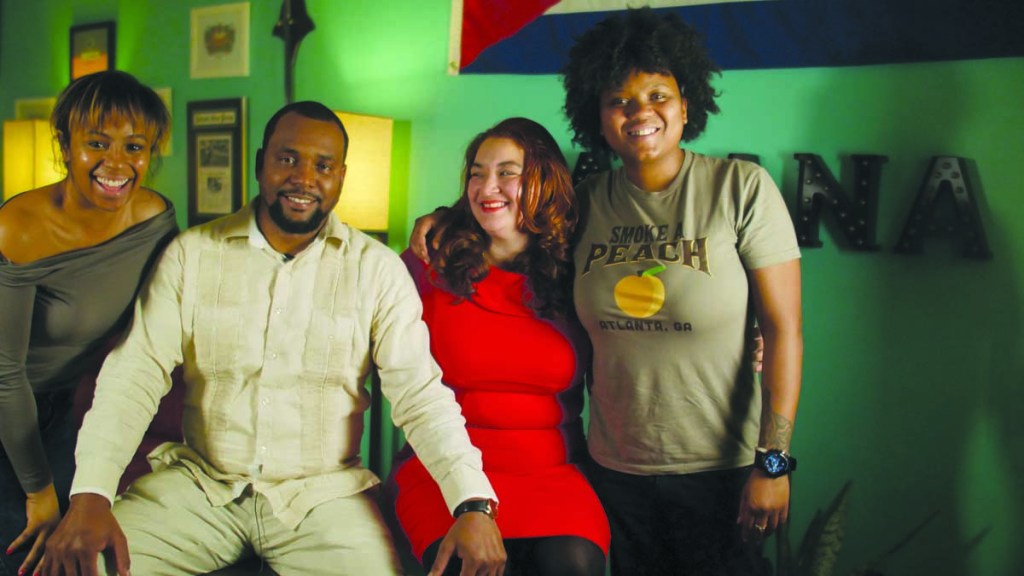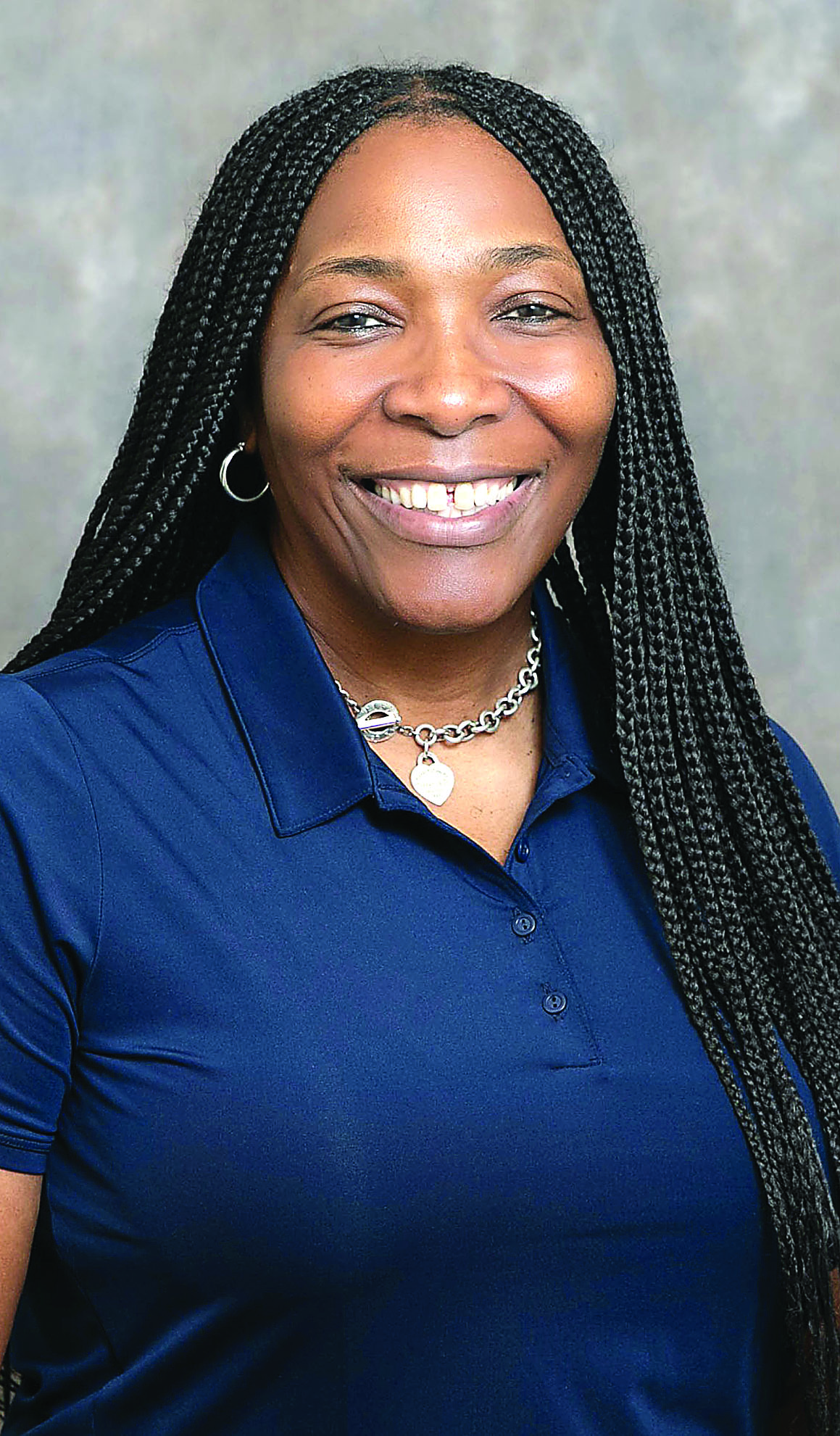Local native explores business dream, filmmaking
Published 11:15 am Thursday, July 5, 2018

- Harper and the crew on set with Rafa and Heather, the owners of Havana Cigars, a cigar lounge located in the heart of Auburn Avenue.
MILLEDGEVILLE, Ga. — Let’s take a step back to the 1940s in Atlanta.
Dr. Martin Luther King Jr. may have been sitting in his church — Ebenezer Baptist Church, listening to the Rev. Martin Luther King, Sr., known as “Daddy” King, preach. B.B. King may have been performing or Gladys Knight singing at The Royal Peacock Club. Businessmen may have been walking into the Atlanta Life Insurance Co. building to start their day at work or reporters may have been investigating the latest news at the Atlanta Daily World. No matter the side of the street, Auburn Avenue, the host to all of these historic buildings, was a haven for the African-American community during a time when the Jim Crow laws prevailed throughout the south.
Born in response to the Atlanta race riots of 1906, Auburn Avenue, a street near the heart of downtown Atlanta became a cultural and commercial dwelling place for the black community. The entertainment spots allowed black Americans to bring their roots into music, organizations and social clubs. Churches gave a place of refuge, and offices brought stability and jobs to those affected by segregation. The street shares a history that digs deep into the souls of many musicians, authors, artists, businessmen and recognized individuals throughout the south.
One Milledgeville local decided that the stories along the ‘Sweet Auburn’ historic district were too important not to tell.
Shonda Harper was born and raised in Milledgeville and decided to make it her goal to bring inspiration, awareness and knowledge to others through the lens of filmmaking.
Growing up, Harper spent a lot of time in church and around her family. Playing outside, sports and books were some of her favorite things to pass the time.
“I’ve always been a really avid reader — so I was constantly reading,” Harper said. “In the summertime, my mom used to take us to the Mary Vinson Library, and I would get like 10 to 15 books at a time. I would take them home and just devour them and be done in a couple of days and that’s just how I spent a lot of my time as a kid – with my nose in a book. I was always in my head, I was always daydreaming and imagining things. I always knew I wanted to tell stories, I just wasn’t sure what that would look like or how I would do it – but there were things about the world that interested me. I knew that somehow, someway, I would end up telling stories.”
These stories eventually took her to Georgia Military College where she realized her potential as a writer.
“I spent a good portion of my 20s being so frustrated,” Harper said. “I always knew that I wanted to do it, but I didn’t know what art form I wanted to do it with so I was super-frustrated about what my creative outlet would be. So I enrolled in classes at GMC and I met two professors that absolutely changed my life. … That was the first time as an adult that I had people who had the skills to really recognize talent to tell me ‘you’re really good, you’re really talented’ and they saw something in me that I really couldn’t even see myself at the time. They encouraged me to try different things — I tried poetry, creative writing; I directed some theater, but eventually, it kind of all led me to film.”
After realizing that film was her calling, Harper enrolled in film school at Georgia State University in Atlanta. It was there that she honed in on her talents as a storyteller and filmmaker. After meeting soon-to-be business partner, Alanah Lark, who was studying journalism, the two women took to creating their dream — Soul Force Productions.
Soul Force Productions is the product of lots of hard work and dreams, and Harper credits her roots in Milledgeville as a huge guiding point in her life.
“Being from Milledgeville, one thing that I know that Milledgeville instilled in me is a very strong work ethic,” Harper said. “Everyone that I know in Milledgeville, they’re blue collar, hard-working people, and so I’ve always had that work ethic.”
That work ethic is something that Harper did not take for granted as she pursued her dreams of creating.
“It’s crazy to watch your dreams unfold and happen — it’s such a surreal feeling,” Harper added.
When setting out to create a documentary, Harper and Lark studied Auburn Avenue and Harper realized that Milledgeville is not a far cry from the Atlanta street.
“I’ve seen it [Milledgeville] change and struggle over the decades,” Harper said. “I’ve seen what happens to communities and to families when businesses and industries move. It’s amazing to see how these people, these communities are super resilient — you couldn’t get my parents to leave Milledgeville if you wanted to—they love that place. Same with my grandma, my aunties, my uncles — people love that place, they fight for it and they stay there and they do what they can do to keep it alive and to keep it thriving. I think I brought a lot of that with me to Atlanta. Once I got here and I learned the history of Auburn Avenue, it just kind of triggered something and I was like ‘this is exactly what happened in my hometown.’”
Harper’s Milledgeville influence extends beyond just inspiration for creativity and hard work. The small town influence has truly effected everything involving Soul Force Productions and the work the business produces.
“I know that for me growing up, we were really working class people, we didn’t go on a lot of vacations, I didn’t travel abroad, a lot of times documentaries and films were my glimpse into the world, into things I couldn’t see firsthand.”
The film “Sweet Auburn Blues” is set to be finished with production in August. For more information or to donate to the production of the documentary, visit www.indiegogo.com/projects/sweet-auburn-blues–3#/backers.





